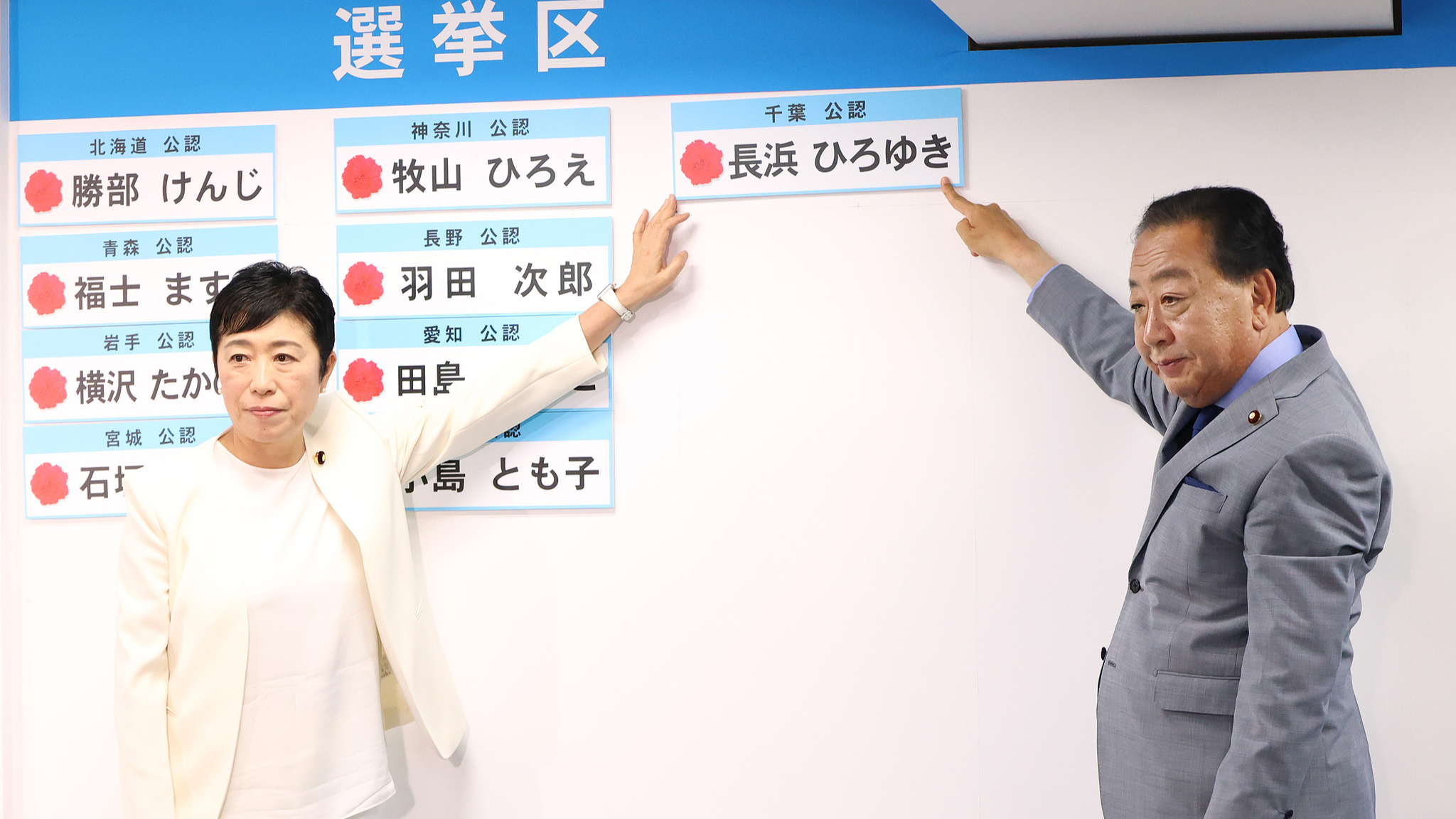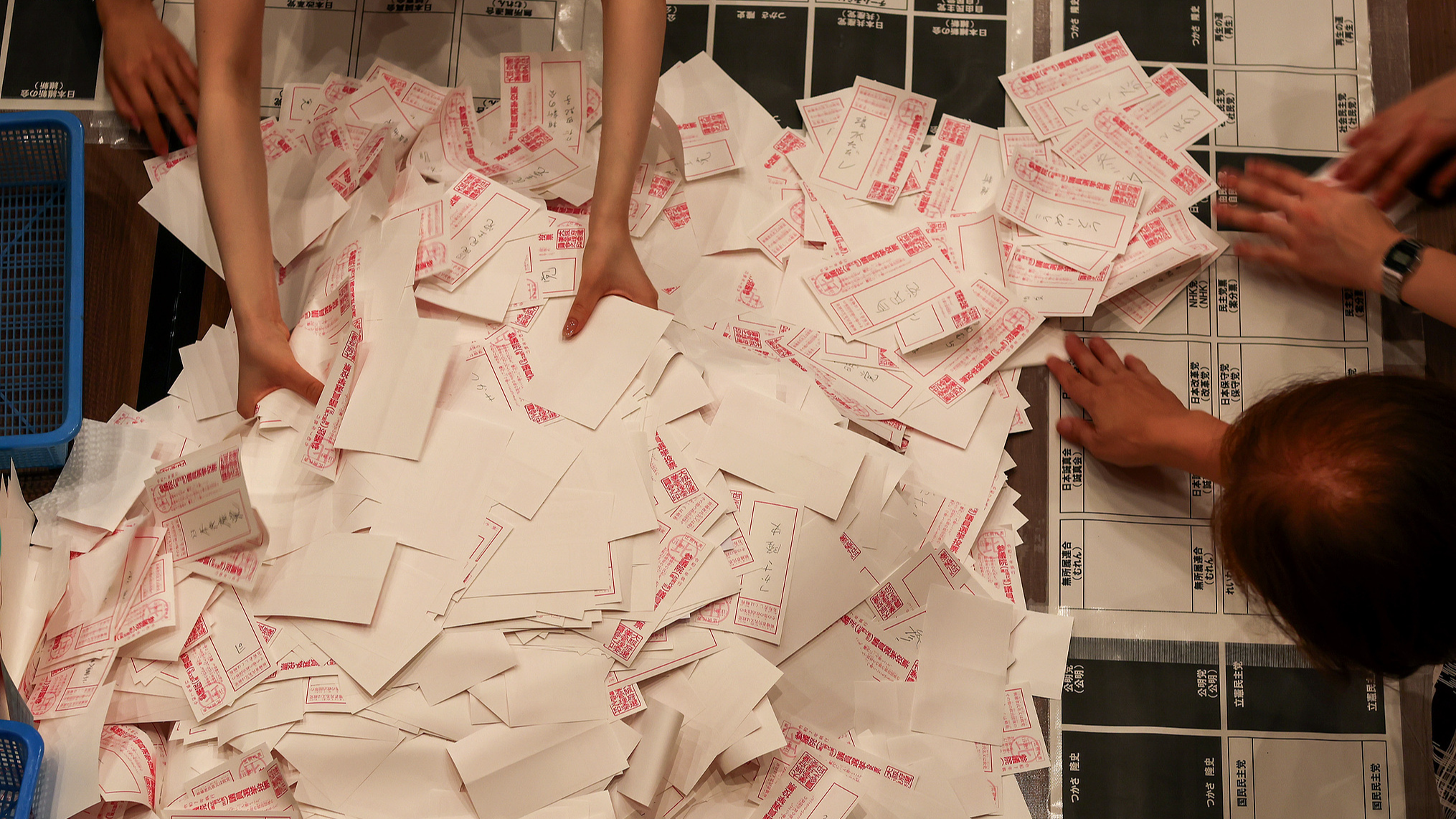
Japanese Prime Minister Shigeru Ishiba addresses the media at the Liberal Democratic Party headquarters in Tokyo, Japan, July 20, 2025. /VCG
Japan's ruling coalition lost control of the upper house in an election on Sunday, further weakening Prime Minister Shigeru Ishiba's grip on power even as he vowed to remain party leader, citing a looming tariff deadline with the United States.
While the ballot does not directly determine whether Ishiba's administration will fall, it heaps pressure on the embattled leader who also lost control of the more powerful lower house in October.
Ishiba's Liberal Democratic Party (LDP) and coalition partner Komeito returned 47 seats, short of the 50 seats it needed to ensure a majority in the 248-seat upper chamber in an election where half the seats were up for grabs.
That comes on top of its worst showing in 15 years in October's lower house election, a vote which has left Ishiba's administration vulnerable to no-confidence motions and calls from within his own party for a leadership change.
Ishiba vows to stay on
Speaking late on Sunday evening after exit polls closed, Ishiba told NHK he "solemnly" accepted the "harsh result."
"We are engaged in extremely critical tariff negotiations with the United States, we must never ruin these negotiations. It is only natural to devote our complete dedication and energy to realizing our national interests," he later told TV Tokyo.
Asked whether he intended to stay on as prime minister and party leader, he said "that's right."
Ishiba's center-right party has governed Japan almost continuously since 1955, albeit with frequent changes of leader.
The last three LDP premiers who lost a majority in the upper house stepped down within two months, and analysts had predicted that a significant loss in this election would yield a similar outcome.
This would open the field for a potential run at the leadership by other notable LDP members, including Sanae Takaichi, who finished second to Ishiba in last year's leadership election; Takayuki Kobayashi, a former economic security minister; and Shinjiro Koizumi, the son of former Prime Minister Junichiro Koizumi, according to BBC News.
In late June, The Japan Times reported that if the LDP and Komeito lose their majority, that would force them to either remain a two-party ruling coalition and face the difficult and time-consuming process of gaining agreement from at least one opposition party for every piece of legislation in both chambers of parliament, or invite an opposition party into their coalition.

Japan's main opposition Constitutional Democratic Party of Japan leader Yoshihiko Noda, R, and executive Kiyomi Tsujimoto put name plates of the party's candidates of the Upper House election on the board at the party headquarters in Tokyo, Japan, July 20, 2025. /VCG
'Hammered home'
The main opposition Constitutional Democratic Party finished second with 22 seats.
Opposition parties advocating for tax cuts and welfare spending struck a chord with voters, as rising consumer prices – particularly a jump in the cost of rice – have sowed frustration at the government's response.
"The LDP was largely playing defense in this election, being on the wrong side of a key voter issue," David Boling, a director at consulting firm Eurasia Group, told Reuters.
"Polls show that most households want a cut to the consumption tax to address inflation, something that the LDP opposes. Opposition parties seized on it and hammered that message home."
The LDP has been urging fiscal restraint, with one eye on a very jittery government bond market, as investors worry about Japan's ability to refinance the world's largest debt pile. Any concessions the LDP must now strike with opposition parties to pass policy will only further elevate those nerves, analysts say.
"The ruling party will have to compromise in order to gain the cooperation of the opposition, and the budget will continue to expand," Yu Uchiyama, a politics professor at the University of Tokyo, told Reuters.
"Overseas investors' evaluation of the Japan economy will also be quite harsh."

Election staff members count votes at a ballot counting center in Osaka, Japan, July 20, 2025. /VCG
'Japanese first'
Meanwhile, the far-right Sanseito party announced its arrival in mainstream politics, adding 14 seats to one elected previously.
The fringe far-right Sanseito party, birthed on YouTube a few years ago, announced its arrival with its "Japanese First" campaign.
Sanseito wants "stricter rules and limits" on immigration, opposes "globalism" and "radical" gender policies, and wants a rethink on decarbonization and vaccines.
Japan, the world's oldest society, saw foreign-born residents hit a record of about 3.8 million last year.
"They put into words what I had been thinking about but couldn't put into words for many years," one voter told AFP at a Sanseito rally.
(With input from agencies)
阅读原文:https://news.cgtn.com/news/2025-07-21/news-1Fb7Ud5n72M/p.html